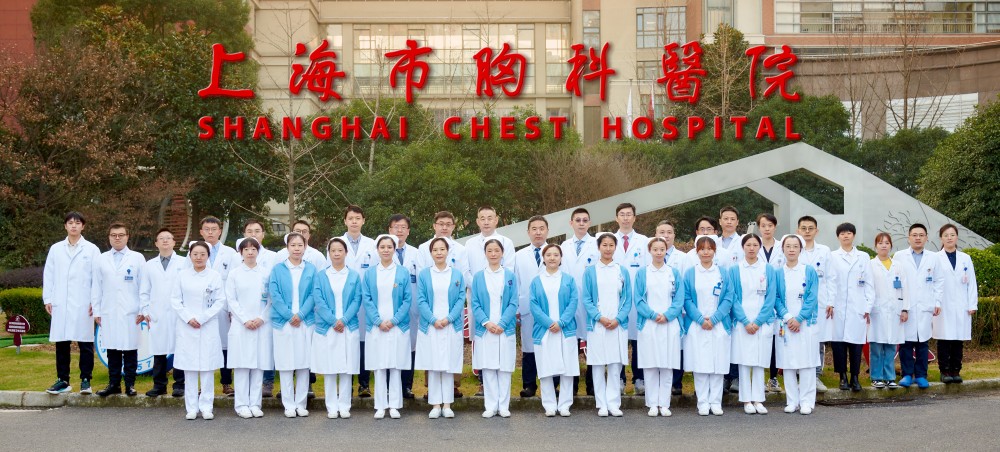
Research
Dr. Zhigang Li is a pioneer in conducting clinical translational research focusing on key clinical issues in esophageal cancer. Based on the earliest clinical trial of neoadjuvant immunotherapy for esophageal cancer in China, he has published research results on immunotherapy markers in Cancer Cell, the leading international journal of oncology, and has provided a new rationale and idea for immunotherapy precision treatment of esophageal cancer. He utilized the most complete research cohort of esophageal cancer lymph node metastasis in China to explore the mechanism of lymph node metastasis and targeted research. As the world's largest esophageal hypopharyngeal dual-origin cancer treatment unit, Dr. Li’s team has taken the lead in completing the study of carcinogenesis and tumor heterogeneity – by investigating the relationship between background differences in the genome (relevant results published in Br J Cancer) and the dynamic evolution of genes in time/space (a project in progress).
The groundbreaking research of Dr. Zhigang Li has significantly propelled the field of clinical medicine, specifically in the study of esophageal cancer. His contributions have played a vital role in the development of effective diagnostic and therapeutic approaches for esophageal diseases, drove further research, and enhanced clinical practice.

His Team and their Research
The team at the esophageal surgery section of Shanghai Chest Hospital is a leading force in the field of international esophageal cancer clinical care. Focusing on clinical needs, the team has spearheaded minimally-invasive esophageal surgery and innovative multidisciplinary treatment, achieving significant milestones:
Pioneer in minimally-invasive esophageal surgery (Robotic technology)
Leader of the guidelines on treatment strategies for early-stage superficial esophageal cancer
Founder of the application promotion and mechanism exploration of immunotherapy strategy for esophageal cancer
Innovators in the "Organ Preservation" treatment strategy for the new era of esophageal cancer
Pioneers in clinical-translational research addressing key clinical issues in esophageal cancer
Dr. Zhigang Li is the head of the clinical team of the Esophageal Surgery Section at Shanghai Chest Hospital and has extensive research experience in clinical translational research on esophageal cancer. His research findings have been published in several high-impact academic journals, such as Cancer Cell, Cancer Research, and Journal of Biomedical Science. Additionally, he has received multiple research grants, such as the National Key Research and Development Program of China supported by the Ministry of Science and Technology of China (Precision Diagnosis and Treatment System for Esophageal Cancer) and the International Cooperation and Exchanges supported by the National Natural Science Foundation of China.
He has extensive diagnostic and therapeutic experience in general thoracic surgery and other fields, with a focus on the precise diagnosis and stratified treatment of malignant lung tumors. He also has outstanding treatment experience in rare and complex disease areas such as the trachea, mediastinum, and chest wall. As the builder and leader of the Robot-Assisted Minimally Invasive Esophageal Cancer Surgery Center, he excels in providing efficient treatment outcomes for patients through multidisciplinary collaboration. He is committed to the minimally invasive surgical treatment of esophageal diseases and has established the world's largest robot-assisted esophagectomy program. Furthermore, he pioneered the development of the MSA technology for GERD treatment in China.

Dr. Li pioneered the Neoadjuvant Immunotherapy Trial for Esophageal Cancer (NICE study) in China, which is one of the first registered clinical studies of neoadjuvant chemotherapy combined with immunotherapy for esophageal cancer globally. The related research findings have been presented multiple times at important international conferences such as the annual meetings of American Society of Clinical Oncology (ASCO), European Society for Medical Oncology (ESMO), American Association for Thoracic Surgery (AATS) and published in the Journal for ImmunoTherapy of Cancer (JITC) and the Journal of Thoracic and Cardiovascular Surgery (JTCVS), and Cancer Cell. These results have been highly recognized by peers both locally and internationally and have been widely promoted in clinical practice. According to the 2022 Guidelines of Clinical Oncology (CSCO) Esophageal Cancer, immunotherapy combined with a chemotherapy regimen has been included in the Level III recommendation for neoadjuvant therapy. As one of the world's leading members, his team participated in the KEYNOTE590 study, of which the results were published in the Lancet and included in the National Comprehensive Cancer Network (NCCN)/CSCO guidelines.
Dr. Li currently leads the PreSINO trial to establish a new system for assessing the efficacy of neoadjuvant therapy for esophageal cancer. The team innovatively combined liquid biopsy ctDNA with clinical endoscopic biopsy, and conducted the first international diagnostic trial to assess the efficacy of neoadjuvant therapy for esophageal cancer in "complete response" (Shanghai, China-Hong Kong-Taiwan, and the Netherlands-Europe). The aim was to establish a generalizable clinical strategy that would provide a reliable basis for the "preservation of the esophagus". The interim results of this project were presented at the 2023 annual meeting of the International Society for Diseases of the Esophagus (ISDE).
His team led the world's first phase III clinical trial (NCT04135664) comparing the efficacy of additional surgical esophagectomy with radiotherapy after ESD in patients with cN0-pT1b esophageal squamous carcinoma. The results of the study provided strong evidence for the clinical management strategy of patients with early-stage superficial esophageal squamous carcinoma.
